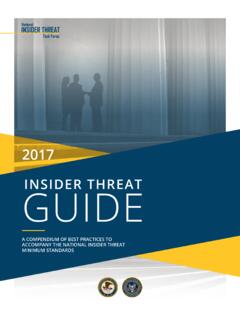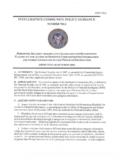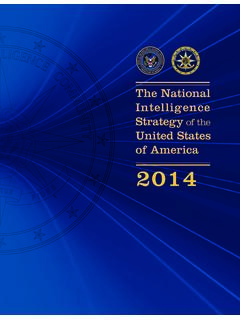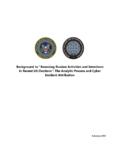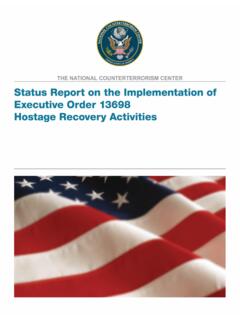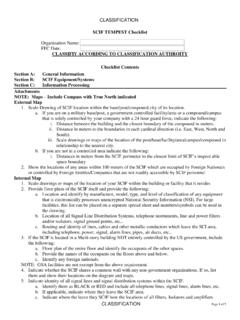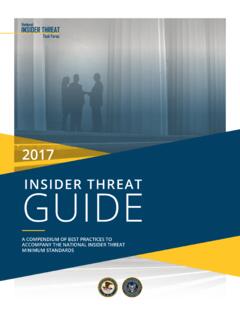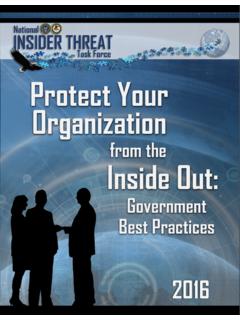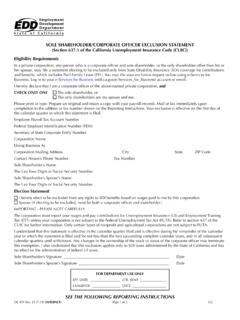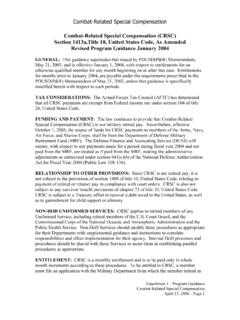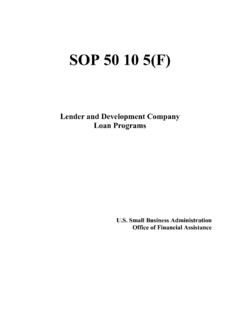Transcription of SECURITY EXECUTIVE AGENT DIRECTIVE (SEAD) 3 Reporting ...
1 SECURITY EXECUTIVE AGENT DIRECTIVE (SEAD) 3. Reporting requirements for Personnel With Access to Classified Information or Who Hold a Sensitive Position Office of the Director of National Intelligence National Counterintelligence and SECURITY Center 1. Overview Pursuant to EXECUTIVE Order 13467, as amended, the Director of National Intelligence (DNI) serves as the SECURITY EXECUTIVE AGENT (SecEA), responsible for developing, implementing, and overseeing uniform policies and procedures governing the conduct of investigations and adjudications for eligibility for access to classified information or to hold a sensitive position.
2 On December 14, 2016, the DNI signed SECURITY EXECUTIVE AGENT DIRECTIVE (SEAD) 3, Reporting requirements for Personnel With Access to Classified Information or Who Hold a Sensitive Position, effective 12 June 2017. This briefing describes the foundation of that landmark policy, how it applies to individuals working for the federal government, and applicable Reporting requirements . 2. Foundation for SEAD 3 Development SEAD 3 establishes standardized Reporting requirements across the federal government for all covered individuals (defined on Slide 5) who have access to classified information or hold a sensitive position.
3 SEAD 3 was developed with subject matter experts across the federal government to promote consistency in personnel SECURITY Reporting requirements for all covered individuals. The Reporting requirements outlined in SEAD 3 address the need for covered individuals to report information to their department or agency (D/A) in a more timely manner. SEAD 3 was designed to strengthen the safeguarding of national SECURITY equities, such as national SECURITY information, personnel, facilities, and technologies. Key Definitions Classified national SECURITY information or classified information: Information that has been determined pursuant to EO 13526 or any predecessor or successor order, or the Atomic Energy Act of 1954, as amended, to require protection against unauthorized disclosure.
4 National SECURITY Eligibility: Eligibility for access to classified information or to hold a sensitive position, to include access to sensitive compartmented information, restricted data, and controlled or special access program information. Unauthorized Disclosure: A communication, confirmation, acknowledgement, or physical transfer of classified information, including the facilitation of, or actual giving, passing, selling, publishing, or in any way making such information available to an unauthorized recipient. 4. Key Definitions (con't). Covered individuals: Individuals (to include contractors, subcontractors, licensees, certificate holders, grantees, experts, and consultants) who: Perform work for or on behalf of the EXECUTIVE branch who have been granted access to classified information or who hold a sensitive position.
5 Perform work for or on behalf of a state, local, tribal, or private sector entity, who have been granted access to classified information; or Serve in the legislative or judicial branches and have been granted access to classified information Sensitive Position: Any position within or in support of an agency in which the occupant could bring about, by virtue of the nature of the position, a material adverse effect on national SECURITY regardless of whether the occupant has access to classified information and regardless of whether the occupant is an employee, military service member, or contractor.
6 The designation levels of Noncritical-sensitive, Critical-sensitive, and Special-sensitive determine the degree to which any person in the position could cause a material adverse effect on national SECURITY .. 5. Why is Reporting Important? Covered individuals incur a continuing SECURITY obligation to be aware of the risks associated with foreign intelligence operations and/or possible terrorist activities directed against them in the and abroad, and to be aware they possess or have access to information that is highly sought after by our foreign adversaries and competitors, including, but not limited to.
7 Classified or sensitive information vital to national and economic SECURITY Emerging technologies and pioneering research and development Information relating to critical infrastructure sectors Proprietary secrets SECURITY or counterintelligence information Covered individuals have a special and continuing obligation and responsibility for recognizing and avoiding personal behaviors and activities that may impact their continued eligibility for access to classified information or to hold a sensitive position. 6. Why is Reporting Important? (con't). Covered individuals shall report to their agency head or designee, any planned or actual involvement in any of the activities prior to participation in such activities or otherwise as soon as possible following the start of their involvement.
8 SEAD 3 entrusts all covered individuals with the critical responsibility to report behavior or activities of those around them that could compromise classified information, workplace safety, and/or our national SECURITY . Important examples: You may be targeted by foreign intelligence entities when traveling abroad. This could include direct elicitation (a pitch, either in-person or otherwise), human targeting (meeting someone who shares your interests at a professional conference), surveillance (either physical or electronic), or being subjected to questioning at an international airport or other point-of-entry.
9 Prompt Reporting serves as a mechanism to get the necessary attention and support before the situation escalates. By providing your organization with information about when you are traveling, where you are venturing to, and who you are meeting with, your organization can inform you of any applicable threats beforehand, and provide needed assistance should unexpected developments occur during your travel. In the aftermath of several espionage cases, co-workers commented that they noticed unusual behavior, but did not know how to report concerns, or to whom. REMINDER: Foreign intelligence services often operate in countries other than their own, including those that are friendly to the You do not have to travel to an adversarial country to be targeted by a foreign intelligence service!
10 7. Reportable Activities Foreign Travel Foreign Travel D/A Heads or designees shall determine requirements for Reporting foreign travel as part of the covered individual's duties. Unofficial Foreign Travel (unrelated to official government business). Individuals must submit an itinerary and receive advance approval prior to travel. Unanticipated border crossings are discouraged. Individuals are required to report all deviations from their approved itinerary within five business days of return. Travelers shall receive a defensive SECURITY awareness or counterintelligence briefing prior to any travel (official or unofficial).
